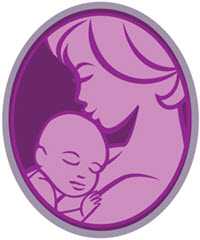Maternal and Child Health Epidemiology Program

Who Are We?
The Maternal and Child Health Epidemiology Program (MCHEP) resides in the Field Support Branch (FSB), Division of Reproductive Health (DRH). MCHEP assigns epidemiologists and fellows to state, local, and tribal levels to support epidemiologic research and provides scientific information to improve maternal and child health programs and policies.
The MCHEP has assigned more than 35 senior CDC epidemiologists focused on MCH epidemiology capacity building and applied research to 20 states, and 6 other public health agencies and organizations (including Washington, D.C., Puerto Rico, US-Mexico Border Region, CityMatCH, Northwest Portland Area Indian Health Board, and the Indian Health Service Epidemiology Office). As of January 2017, 13 senior MCH epidemiologist assignees and 6 fellows from the Council of State and Territorial Epidemiologists were working in 15 public health agencies or institutions.
Learn about MCHEP accomplishments, including the development of a State Infant Mortality Toolkit (SIM) to help states, counties, tribes and urban areas analyze infant mortality data and translate findings into programs and policies to reduce infant mortality.
What is Our Mission?
The MCHEP mission is to promote and improve the health and well-being of women, children, and families by building capacity at state, local, and tribal levels and to use and apply sound epidemiologic research and scientific information to maternal and child health programs and policies.
What Do We Do?
The key functions of MCHEP are to:
- Increase states’ epidemiologic infrastructure by assigning senior CDC maternal and child health (MCH) epidemiologists and fellows, training future MCH leaders, and increasing states’ ability to apply scientific evidence at the agencies where the senior MCH epidemiologists are assigned.
- Partner with organizations that provide services or influence policy and practice guidelines, such as state and county health departments, territories, and tribal-serving organizations.
- We support work to reduce long-standing and substantial MCH disparities between American Indian/Alaska Native (AI/AN) and other U.S. populations. The MCHEP mission lays the groundwork for improving reproductive and MCH among AI/AN communities throughout the United States.
The MCHEP accomplishes its mission by:
Developing MCH Epidemiology Leaders
MCHEP has made a significant contribution to epidemiologic research and applied science in the field. The use of applied research and the activities targeting capacity building in MCH epidemiology has allowed states, tribes, and localities to improve the overall health of mothers, children, and families.
Advancing MCH Epidemiology Data/Analytic Capacity
MCH agencies are provided with the analytic leadership necessary to engage in data-based decision-making to promote the health of the MCH population.Please see examples below. For more information, contact: MCHEPI@cdc.gov.
- The CDC Levels of Care Assessment Tool (CDC LOCATe) – Designed to help states and other jurisdictions monitor neonatal and maternal risk appropriate care.
- Long-Acting Reversible Contraception (LARC) Learning Community – The Learning Community, with federal agency support, provides a forum for peer-to-peer information exchange, to assist in reducing unintended pregnancy among women of reproductive age in the US by improving access to contraception, with a focus on LARC.
- Maternal Mortality Review Information Application (MMRIA) – A data system designed to empower the maternal mortality review community.
Evaluating, Training, and Educating in the Field of MCH
In partnership with others, MCHEP supports diverse training opportunities in epidemiology, biostatistics, program evaluation, and scientific writing to improve the data and analytic skills of staff from state and local public health agencies, including the following:
- Skills-building workshops targeting identified critical needs.
- Short-term MCH epidemiology courses for staff.
- Graduate certificate training in MCH epidemiology using distance technology.
- Year-long, team-based training on effectively using analyzed data for public health action.
Creating Peer Exchange Opportunities

Peer exchange and research collaboration are offered through conferences, Webcasts, and other mechanisms. The Maternal and Child Health Epidemiology Conference started in 1995 and was annual until 2012. In 2012 it became a biennial, co-hosted conference with CityMatCH Urban MCH Leadership Conference and the name was changed to CityMatCH Leadership & MCH Epidemiology Conference. Below are links to archived sessions for review.
2016 CityMatCH Leadership & MCH Epidemiology Conference September 14-16
2014 CityMatCH Leadership & MCH Epidemiology Conference September 17-19
18th Annual MCH EPI Conference (co-hosted with the 2012 CityMatCH Urban MCH Leadership Conference) December 12-14, 2012
- Page last reviewed: July 20, 2017
- Page last updated: July 20, 2017
- Content source:


 ShareCompartir
ShareCompartir